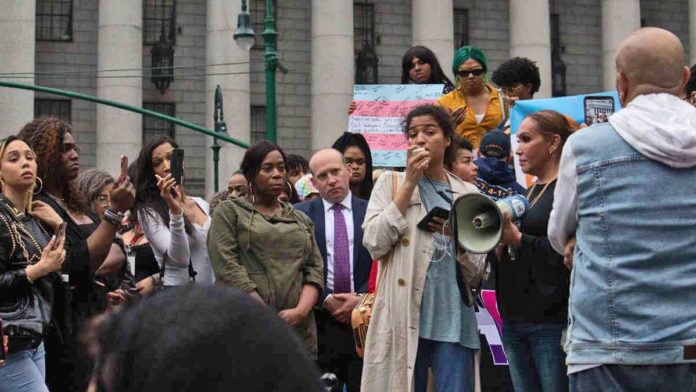One year ago, at the press conference for World Pride in New York City, “POSE” star Indya Moore spoke about their friend Layleen Polanco, a trans woman who died while under police protection. Immediately after that, the largest LGBTQ pride celebration in history took place, honoring the 50th Anniversary of the Stonewall Riots. Moore’s words seemed to echo amidst the cheering and clapping, amidst the hugs and smiles and messages of thanks. One memorable line of theirs that resonated seems to have an even greater meaning today:
“Love us when we’re under attack.”
There was no Pride parade in New York this year, or Philadelphia, or Washington, D.C. Instead, Pride went virtual, with the individual pride organizations around the world submitting videos that played as part of a unified Global Pride celebration on Youtube. Just like last year, though limited to a digital screen, people shouted messages of pride. They hoisted rainbows flags and proclaimed that the fight for equality will continue. And just as it was last year, the murder of Black trans women has not stopped.
During Global Pride, many of the speakers mentioned being in solidarity with Black Lives Matter. In the comments section, people wrote the names of those whose lives were horrifically taken away.
There is a large, collective anger this year surrounding the death of Black lives, the death of Black trans lives, that feels greater in scope and in size than last year. George Floyd’s murder and Breonna Taylor’s murder ignited national protests that began in May and have continued for weeks both digitally and in-person. Then the LGBTQ community created solidarity marches of their own. In Philadelphia, the Queer March for Black Lives took place June 21. In New York it was June 28, the anniversary of the Stonewall Riots in 1969.
Like 1969, people marched to be treated equally, equitably, humanely. Just as Gay Liberation Front marched with the Black Panthers fifty years ago, the LGBT Community marched in solidarity with Black Lives Matter movement today.
But in 2020, things are different. It’s now possible to record injustice and share it instantly online. It’s now possible to call out people in power and for those shouts to be heard far beyond the town, city, state, and country of origin. That is perhaps the biggest difference from fifty years ago to today, and even one year ago to today. Visibility is what sparks change. The activists of 50 years ago knew it, and the activists of today know it. Without visibility, shouts go unheard, calls to action go unheeded.
On June 29, one year after Indya Moore spoke at World Pride about Layleen Polanco, the Mayor of New York City, Bill de Blasio, announced plans to end solitary confinement in city jails. Seventeen corrections officers will be punished in connection with her death.
“Layleen Polanco should not have been in solitary confinement,” de Blasio said in a press conference. “And lord knows she deserves justice. Her family deserves justice, the transgender community deserves justice; we have to right the wrong. We can’t bring her back, but we can make change so that no one else goes through such a tragedy.”
